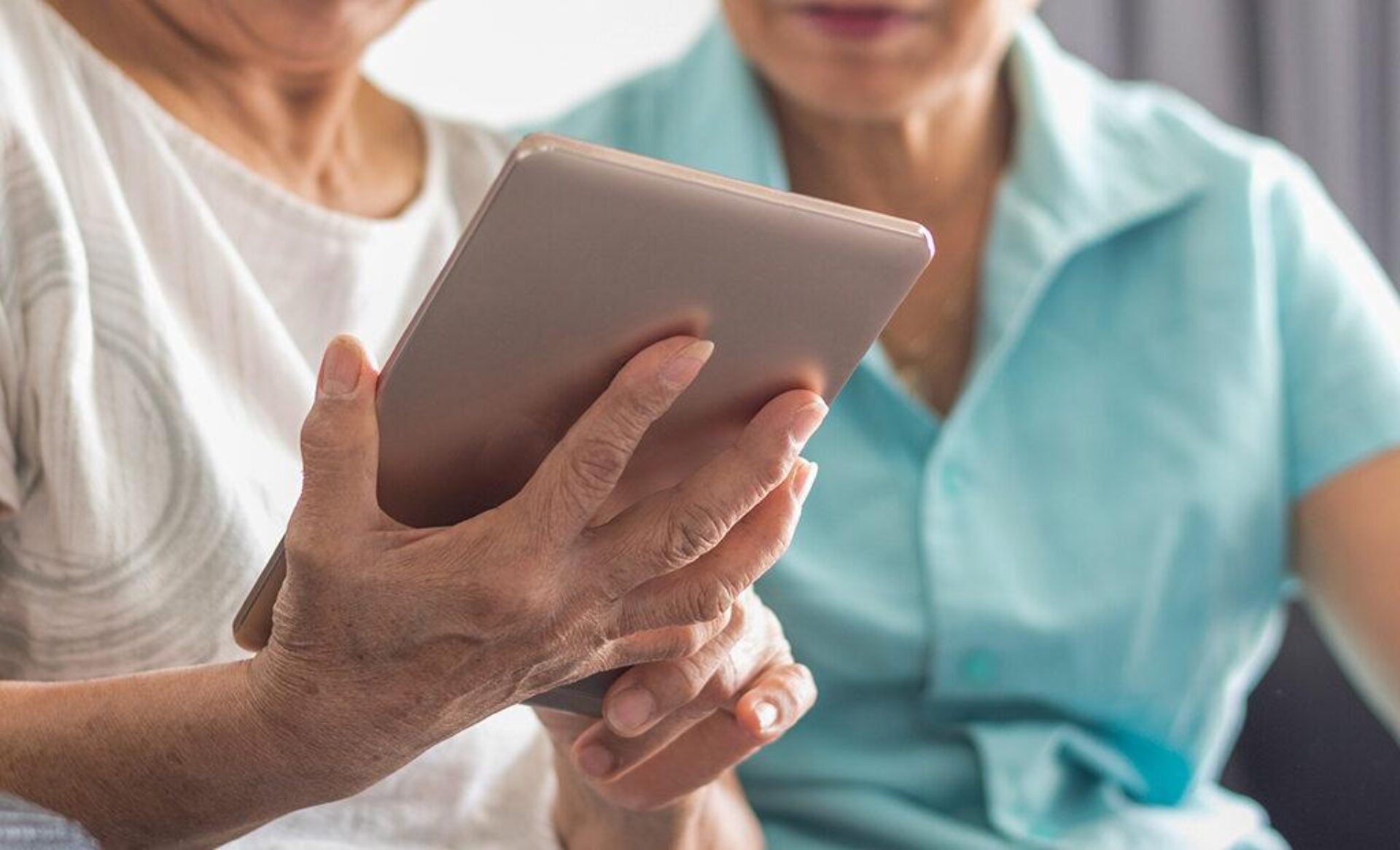
Increasing Rates of Serious Illness Conversations through Patient and Clinician Nudges
- Augmented & Artificial Intelligence,
- Behavior Change,
- Clinical Transformation,
- Health Equity
This project tested the effects of clinician- and patient-directed nudges on the rate of serious illness conversations for patients with advanced cancers. Serious illness conversations (SICs) that elicit patients’ values, goals, and care preferences reduce anxiety and depression and improve quality of life.
A national guideline-endorsed practice, serious illness conversations (SICs) are an opportunity for patients to share their wishes, care preferences, values, and goals as their disease progresses. They have been shown to improve patient mood and quality of life. However, all too often, serious illness conversations take place too late in a patient’s illness trajectory – or do not take place at all. At Penn Medicine, for instance, clinicians document SICs for fewer than 5% of patients with advanced cancer. There are several potential reasons for this: clinicians’ bias toward optimism that their patients’ prognosis is better than it is, clinicians wishing to not cause distress to their patients, patients’ fear of discussing their mortality, and patients believing they should wait until their illness is more grave for such conversations. Furthermore, studies have demonstrated racial and ethnic disparities and inequities in regards to documentation of SICs. For instance, a 2013 study reported only 18% of respondents from ethnic minority groups completed advance directives compared to 34% of White respondents.
Based on this critical need to increase the frequency and improve the timeliness of SICs, we are testing behavioral economics-informed multilevel implementation strategies for early SICs. Our preliminary research examined a clinician nudge through which a machine learning algorithm identifies patients at high risk of mortality and sends targeted messages to clinicians to nudge, or prompt, them to initiative a SIC with these patients. While this successfully resulted in a three-fold SIC increase for high-risk patients, SICs were still not documented for over half of patients.
In a new randomized controlled trial (RCT), we are adding a peer comparison message to the existing clinician nudge as well as a patient component. Patients randomized to receive the new patient nudge will receive a text message normalizing SICs and linking to a short questionnaire relating to their understanding of and goals for their illness and care. Patient responses will be sent to their clinician, with the intention of priming the patient and provider to talk about these issues. The RCT will compare four groups: those receiving the enhanced clinician nudge only, those receiving patient nudges only, those receiving both, and those receiving neither. The RCT is accompanied by mixed method research with key stakeholders and beneficiaries to better understand the context of the intervention. Health equity will be a driving force, with an underlying examination of how race, income, and setting impact implementation and effectiveness of these strategies.
This research, along with several other related pilot projects, falls under the umbrella of the Penn Implementation Science Center in Cancer Control (Penn ISC3). The ISC3 is comprised of a multidisciplinary team looking to transform the deployment of cancer care delivery and improve outcomes for individuals with cancer by applying insights from behavioral economics and implementation science. These initiatives are funded by the National Cancer Institute under the Cancer Moonshot initiative.
The preliminary research building to this study found that clinician nudges led to an overall improvement in serious illness conversation documentation, with notably greater increases observed among Black and other minority populations, improving the equity of care delivery. Recent findings published in JAMA Network Open demonstrated that together, nudges directed at both patients with high mortality risk and clinicians marginally increased the likelihood of participants engaging in SICs with their clinicians.
National Cancer Institute – National Institutes of Health
Leonard Davis Institute; Center for Health Incentives and Behavioral Economics
Project Leads
-

Samuel Takvorian
MD, MSHP
Deputy Director, PC3I & Director, PC3I's Program in Patient-Generated Health Data
Project Team
-
David Asch
-
Rinad Beidas
-
Justin Bekelman
-
Daniel Blumenthal
-
Alison Buttenheim
-
Oluwadamilola "Lola" Fayanju
-
Peter Gabriel
-
Brian Jenssen
-
Frank Leone
-
Ryan O'Keefe
-
Katharine Rendle
-
Robert Schnoll
-
Rachel Shelton
-
Larry Shulman
-
Sue Ware
-
E. Paul Wileyto
